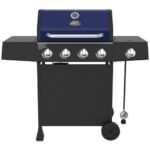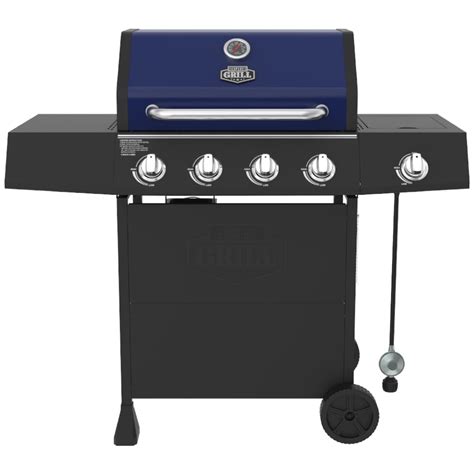
MSC Cruises’ ship, the MSC Meraviglia, encountered severe weather conditions off the coast of Florida, resulting in a turbulent voyage that left passengers shaken and prompted itinerary changes. The ship, carrying thousands of passengers, faced powerful winds and rough seas, leading to discomfort and adjustments to planned activities.
The MSC Meraviglia, embarked on what was intended to be a relaxing cruise, unexpectedly sailed into a powerful storm system. Passengers reported feeling significant movement and experiencing unsettling conditions as the ship battled the elements. “The ship handled it great, but you could feel the magnitude of the waves,” one passenger told Fox 35 Orlando. Another described the experience as “pretty rocky,” highlighting the intensity of the weather.
MSC Cruises confirmed the incident, stating that the MSC Meraviglia “experienced adverse weather conditions” on its way to Port Canaveral, Florida. As a result, the ship was forced to alter its itinerary to ensure the safety and comfort of its passengers. The company emphasized that the safety of its passengers and crew is their top priority and that all necessary precautions were taken to navigate the challenging weather.
Details of the disruption included the cancellation of the ship’s scheduled visit to the private island of Ocean Cay MSC Marine Reserve in the Bahamas. This alteration was made to avoid further exposure to the severe weather system and to allow the ship to return to port as quickly and safely as possible. Passengers expressed disappointment over the missed stop, as Ocean Cay is a highlight for many cruisers on MSC itineraries.
The incident underscores the unpredictable nature of maritime travel and the challenges cruise lines face in ensuring smooth and safe voyages. While modern cruise ships are equipped with advanced technology to handle various weather conditions, extreme events can still lead to discomfort and itinerary changes. Cruise operators continuously monitor weather patterns and adjust routes as needed to mitigate risks and prioritize passenger safety.
The MSC Meraviglia is a large and modern cruise ship, designed to offer a wide range of amenities and experiences. It features multiple restaurants, entertainment venues, swimming pools, and other attractions, making it a popular choice for vacationers. The ship typically operates itineraries in the Caribbean and other regions, catering to a diverse range of travelers.
The recent weather-related disruption serves as a reminder of the potential for unexpected events during cruises and the importance of travel insurance and flexible travel plans. Passengers are often advised to stay informed about weather conditions and to follow the instructions of the ship’s crew in the event of adverse weather.
The ability of the MSC Meraviglia crew to navigate the storm safely and adjust the itinerary demonstrates the professionalism and preparedness of cruise line personnel. Despite the inconvenience caused by the weather, passengers generally acknowledged the efforts made to ensure their safety and well-being.
As the MSC Meraviglia continues its voyage, passengers and crew remain focused on enjoying the remainder of their cruise, while cruise operators continue to monitor weather conditions and prioritize safety at sea. The incident highlights the ongoing need for vigilance and adaptability in the cruise industry to ensure the comfort and safety of all onboard.
The incident also prompted discussions about the impact of increasingly severe weather events on the cruise industry. As climate change continues to affect weather patterns around the world, cruise lines may face more frequent and intense storms, requiring further investments in weather forecasting technology and safety measures. The ability of cruise lines to adapt to these challenges will be crucial to maintaining the safety and appeal of cruise vacations.
Detailed Background and Context
The MSC Meraviglia is a flagship vessel in the MSC Cruises fleet, known for its innovative design and comprehensive array of onboard amenities. Launched in 2017, the ship can accommodate over 5,000 passengers and boasts a wide range of entertainment options, dining venues, and recreational facilities. Its itineraries typically include popular destinations in the Caribbean, Mediterranean, and other regions.
MSC Cruises, a global cruise line with a strong presence in Europe and the Americas, operates a modern fleet of ships that cater to a diverse range of travelers. The company is committed to providing high-quality cruise experiences while prioritizing safety and environmental sustainability.
The recent weather-related incident involving the MSC Meraviglia highlights the challenges faced by cruise lines in navigating unpredictable maritime conditions. While modern cruise ships are equipped with advanced navigation systems and weather forecasting technology, extreme weather events can still pose risks to passenger safety and itinerary schedules.
Cruise operators continuously monitor weather patterns and adjust routes as needed to avoid severe storms and other hazards. They also provide passengers with regular updates and instructions on how to stay safe during adverse weather conditions. The safety of passengers and crew is always the top priority for cruise lines, and they take all necessary precautions to mitigate risks and ensure a safe and enjoyable voyage.
In addition to weather-related challenges, the cruise industry also faces other operational and logistical complexities, such as port congestion, health and safety protocols, and environmental regulations. Cruise lines must carefully manage these factors to ensure smooth and efficient operations and to minimize their impact on the environment.
The cruise industry plays a significant role in the global tourism economy, contributing billions of dollars in revenue and supporting thousands of jobs in ports and destinations around the world. However, the industry also faces scrutiny over its environmental impact and its labor practices. Cruise lines are increasingly investing in sustainable technologies and responsible tourism practices to address these concerns and to ensure the long-term viability of the industry.
Passenger Experiences and Reactions
Passengers aboard the MSC Meraviglia during the recent weather incident described a range of experiences, from mild discomfort to significant anxiety. Many expressed appreciation for the crew’s efforts to keep them informed and safe, while others voiced disappointment over the itinerary changes and missed port calls.
Some passengers took to social media to share their experiences, posting photos and videos of the rough seas and the ship’s movement. These posts generated a flurry of comments and reactions from other cruisers and industry observers, highlighting the widespread interest in cruise-related news and events.
“It was pretty rocky, but the crew did a great job of keeping us informed and safe,” one passenger commented on a social media post. “We were disappointed to miss Ocean Cay, but we understand that safety comes first.”
Another passenger wrote, “The ship handled the weather well, but it was definitely a bumpy ride. We’re just glad to be safe and sound.”
The reactions of passengers underscore the importance of clear communication and transparency from cruise lines during unexpected events. Passengers want to be kept informed about the situation and the steps being taken to ensure their safety and well-being. They also appreciate efforts to compensate them for any inconvenience caused by itinerary changes or other disruptions.
Cruise lines typically offer various forms of compensation to passengers affected by itinerary changes, such as onboard credits, refunds, or future cruise discounts. They may also provide assistance with travel arrangements and accommodations for passengers who need to make alternative plans.
Impact on the Cruise Industry
The recent weather incident involving the MSC Meraviglia serves as a reminder of the inherent risks and challenges associated with maritime travel. While cruise ships are designed to withstand a wide range of weather conditions, extreme events can still cause disruptions and pose risks to passenger safety.
The incident may also prompt cruise lines to review their weather forecasting and route planning procedures to ensure they are taking all necessary precautions to avoid severe storms and other hazards. They may also invest in additional training and equipment for their crews to prepare them for handling adverse weather conditions.
The cruise industry as a whole is facing increasing scrutiny over its environmental impact and its labor practices. Cruise lines are under pressure to reduce their emissions, minimize waste, and improve working conditions for their crews. They are also facing calls for greater transparency and accountability in their operations.
The ability of the cruise industry to adapt to these challenges will be crucial to its long-term viability and success. Cruise lines that prioritize safety, sustainability, and responsible tourism practices will be best positioned to attract passengers and maintain their reputation in a competitive market.
Future of Cruise Travel
The future of cruise travel is likely to be shaped by a number of factors, including technological advancements, changing consumer preferences, and evolving environmental regulations. Cruise ships are becoming more technologically advanced, with features such as automated navigation systems, virtual reality entertainment, and personalized service platforms.
Consumers are increasingly demanding more sustainable and responsible travel options, and cruise lines are responding by investing in eco-friendly technologies and practices. They are also offering more immersive and authentic experiences that allow passengers to connect with local cultures and communities.
Environmental regulations are becoming more stringent, and cruise lines are under pressure to reduce their emissions and minimize their impact on the marine environment. They are investing in alternative fuels, waste management systems, and other technologies to meet these requirements.
Despite the challenges facing the cruise industry, it remains a popular and growing sector of the global tourism market. Cruise vacations offer a unique and convenient way to explore multiple destinations and enjoy a wide range of onboard amenities and activities. As cruise lines continue to innovate and adapt to changing conditions, the future of cruise travel looks bright.
The increasing frequency and intensity of extreme weather events due to climate change pose a significant challenge to the cruise industry. Cruise lines must invest in advanced weather forecasting technologies and develop robust contingency plans to mitigate the risks associated with these events. This includes rerouting ships, altering itineraries, and providing timely and accurate information to passengers. The ability to adapt to these changing conditions will be crucial for the long-term sustainability of the cruise industry. Furthermore, the development and implementation of sustainable practices, such as using alternative fuels and reducing waste, are essential for minimizing the environmental impact of cruise ships and ensuring the health of the marine ecosystems they traverse.
Further Considerations
The MSC Meraviglia incident underscores the critical role of crew training and preparedness in ensuring passenger safety during adverse weather conditions. Cruise lines must invest in comprehensive training programs for their crew members, covering topics such as weather forecasting, emergency procedures, and passenger communication. Regular drills and simulations should be conducted to ensure that crew members are prepared to respond effectively to a variety of emergency situations. Furthermore, effective communication between the ship’s captain, officers, and crew is essential for coordinating responses and keeping passengers informed.
The incident also highlights the importance of travel insurance for cruise passengers. Travel insurance can provide coverage for a variety of unexpected events, such as trip cancellations, medical emergencies, and lost luggage. Passengers should carefully review their insurance policies to ensure that they are adequately covered for potential risks. In the event of a weather-related disruption, travel insurance can help passengers recoup their expenses and make alternative travel arrangements.
Conclusion
The MSC Meraviglia‘s encounter with severe weather serves as a stark reminder of the unpredictable nature of maritime travel and the importance of safety protocols in the cruise industry. While modern cruise ships are equipped to handle various weather conditions, extreme events can still lead to discomfort, itinerary changes, and potential risks. The incident underscores the need for cruise lines to prioritize passenger safety, invest in advanced weather forecasting technology, and maintain well-trained crews capable of responding effectively to emergencies. As climate change continues to impact weather patterns around the world, the cruise industry must adapt and innovate to ensure the safety and sustainability of its operations. The experiences of the passengers aboard the MSC Meraviglia highlight the importance of clear communication, transparency, and adequate compensation for any inconvenience caused by weather-related disruptions. By focusing on these key areas, cruise lines can maintain the trust and confidence of their passengers and ensure the long-term success of the industry. The ability to learn from such incidents and continuously improve safety measures is essential for navigating the challenges of maritime travel and providing enjoyable and secure cruise experiences for all.
Frequently Asked Questions (FAQ)
1. What caused the MSC Meraviglia to experience rough weather? The MSC Meraviglia encountered adverse weather conditions, including strong winds and rough seas, off the coast of Florida.
2. Was anyone injured during the incident? The article does not specifically mention any injuries sustained by passengers or crew.
3. What itinerary changes were made due to the weather? The ship’s scheduled visit to Ocean Cay MSC Marine Reserve in the Bahamas was cancelled.
4. What did MSC Cruises say about the incident? MSC Cruises stated that the MSC Meraviglia “experienced adverse weather conditions” and that the safety of passengers and crew is their top priority.
5. How common are weather-related incidents on cruises? While modern cruise ships are equipped to handle various weather conditions, extreme events can still occur, leading to disruptions and itinerary changes. Cruise lines continuously monitor weather patterns and adjust routes as needed to mitigate risks.
6. How large is the MSC Meraviglia and how many passengers does it hold? The MSC Meraviglia is a large cruise ship that can accommodate over 5,000 passengers.
7. What types of amenities does the MSC Meraviglia offer? The ship features multiple restaurants, entertainment venues, swimming pools, and other attractions.
8. Where does the MSC Meraviglia typically travel? The ship typically operates itineraries in the Caribbean and other regions.
9. What should passengers do in the event of adverse weather on a cruise? Passengers are advised to stay informed about weather conditions and to follow the instructions of the ship’s crew.
10. What is the cruise industry doing to address the challenges of climate change? Cruise lines are investing in sustainable technologies and responsible tourism practices to reduce their environmental impact.
11. Does travel insurance cover weather-related disruptions on cruises? Travel insurance may cover trip cancellations, medical emergencies, and other expenses resulting from weather-related disruptions. Passengers should review their policies for specific coverage details.
12. What kind of compensation do cruise lines typically offer for itinerary changes? Cruise lines may offer onboard credits, refunds, or future cruise discounts to passengers affected by itinerary changes.
13. How do cruise lines monitor weather conditions at sea? Cruise lines use advanced weather forecasting technology and satellite data to monitor weather patterns and adjust routes as needed.
14. What training do crew members receive to prepare for adverse weather conditions? Crew members receive training in weather forecasting, emergency procedures, and passenger communication. Regular drills and simulations are conducted to ensure preparedness.
15. How does the cruise industry contribute to the global tourism economy? The cruise industry contributes billions of dollars in revenue and supports thousands of jobs in ports and destinations around the world.
16. What are some of the environmental concerns associated with the cruise industry? Environmental concerns include emissions, waste management, and the impact on marine ecosystems.
17. What is MSC Cruises doing to promote sustainability? MSC Cruises is investing in eco-friendly technologies and practices to reduce its environmental impact.
18. How are cruise ships becoming more technologically advanced? Cruise ships are incorporating automated navigation systems, virtual reality entertainment, and personalized service platforms.
19. What are some of the emerging trends in cruise travel? Emerging trends include sustainable travel options and immersive experiences that allow passengers to connect with local cultures.
20. How will climate change impact the future of cruise travel? The increasing frequency and intensity of extreme weather events will pose a significant challenge to the cruise industry, requiring investments in advanced weather forecasting and robust contingency plans.
21. How does the captain decide to alter the cruise route? The captain, along with the ship’s navigation team, makes the decision to alter the cruise route based on weather forecasts, real-time weather data, and the ship’s capabilities. The primary concern is always the safety and comfort of the passengers and crew. Consultation with the cruise line’s headquarters and weather experts may also influence the decision.
22. What measures are taken to secure the ship during rough weather? During rough weather, several measures are taken to secure the ship, including securing loose objects, closing off certain areas, and adjusting the ship’s speed and course. Passengers are often advised to stay in their cabins or public areas and to avoid walking around unnecessarily. The crew also monitors the ship’s stability and makes adjustments as needed.
23. What are the responsibilities of the crew during a weather-related emergency? During a weather-related emergency, the crew is responsible for ensuring the safety of the passengers, communicating information, and implementing emergency procedures. This includes providing instructions, assisting those in need, and maintaining order. The crew also works to secure the ship and prevent damage.
24. How can passengers prepare for potential rough weather during a cruise? Passengers can prepare for potential rough weather by packing seasickness medication, wearing comfortable clothing and shoes, and staying informed about the weather forecast. It’s also a good idea to familiarize yourself with the ship’s layout and emergency procedures.
25. What are the long-term implications of frequent weather disruptions for the cruise industry? Frequent weather disruptions could lead to increased costs for cruise lines, reduced passenger satisfaction, and potential damage to the industry’s reputation. Cruise lines may need to invest in more robust ships, develop more flexible itineraries, and enhance their communication strategies to mitigate these risks. The industry may also need to work with governments and international organizations to address the root causes of climate change.









